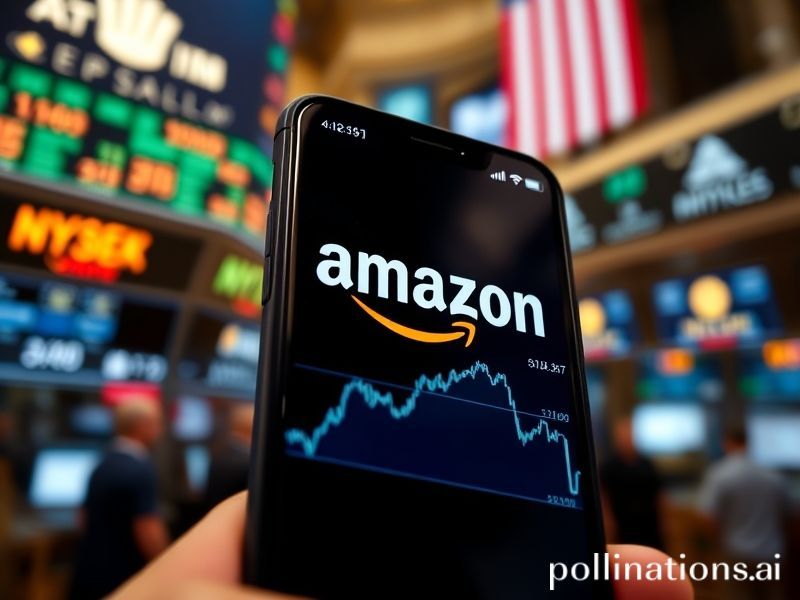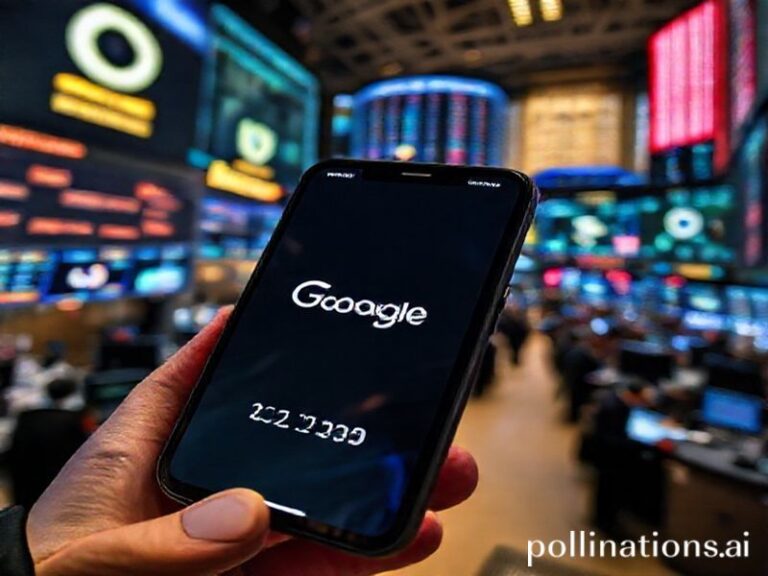Amazon’s Stock Price: The Internet’s Newest Obsession
# **Amazon’s Stock: The Rollercoaster Ride That Has Everyone Glued to Their Screens**
In the vast, ever-shifting landscape of the internet, few things capture global attention like the stock market—especially when it involves a titan like Amazon. The e-commerce giant’s share price has been making headlines, sparking debates, and fueling memes across social media. But why is this particular stock so captivating? Let’s dive into the cultural significance, social impact, and the sheer drama of Amazon’s stock price.
### **The Cultural Context: From Online Bookstore to Global Behemoth**
Amazon’s journey from a humble online bookstore to a global empire is the stuff of legend. Founded by Jeff Bezos in 1994, the company has evolved into a multifaceted giant, dominating e-commerce, cloud computing (AWS), streaming (Prime Video), and even groceries (Whole Foods). Its stock price, therefore, isn’t just a number—it’s a barometer of the company’s influence on modern life.
When Amazon’s stock fluctuates, it’s not just investors who take notice. Consumers, employees, and even competitors watch closely. A dip in the stock price can spark fears of layoffs or slower innovation, while a surge can signal new ventures or market dominance. In a world where tech giants shape economies and cultures, Amazon’s stock price is more than a financial metric—it’s a cultural indicator.
### **The Social Impact: Memes, Misinformation, and Market Mania**
The internet loves a good drama, and Amazon’s stock price has provided plenty of fodder for memes, hot takes, and conspiracy theories. From Reddit threads dissecting every minor fluctuation to Twitter debates about whether Amazon is overvalued or undervalued, the discourse is as lively as it is polarizing.
One of the most fascinating aspects of this trend is how it intersects with internet culture. Meme stocks like GameStop and AMC have shown that retail investors can move markets, and Amazon’s stock isn’t immune to this phenomenon. While it’s not yet a meme stock in the traditional sense, the sheer volume of online chatter about its price movements suggests that retail investors are paying close attention.
Social media has also played a role in amplifying the significance of Amazon’s stock price. Platforms like Twitter, Reddit, and even TikTok have become hubs for financial discussions, where amateur and professional investors alike share insights, predictions, and hot takes. This democratization of financial information has made stock prices more accessible—and more entertaining—to the general public.
### **Why It Matters: Beyond the Numbers**
At its core, the fascination with Amazon’s stock price is about more than just money. It’s about the power of a single company to shape industries, economies, and even daily life. When Amazon’s stock rises, it signals confidence in the company’s future, which can have ripple effects across sectors like retail, technology, and logistics. Conversely, a drop in the stock price can trigger anxiety about job security, innovation, and market stability.
For consumers, Amazon’s stock price is a reminder of the company’s omnipresence. Whether you’re streaming a movie on Prime Video, ordering groceries from Whole Foods, or relying on AWS for your business, Amazon’s influence is undeniable. Its stock price, therefore, becomes a proxy for the health of the digital economy—and by extension, the health of modern life.
### **Conclusion: The Never-Ending Story of Amazon’s Stock**
Amazon’s stock price is more than just a financial metric—it’s a cultural phenomenon. It reflects the company’s dominance, the power of retail investors, and the internet’s insatiable appetite for drama. Whether you’re an investor, a consumer, or just a casual observer, the fluctuations of Amazon’s stock price are a reminder of how deeply intertwined technology and finance have become in our lives.
So, the next time you see a headline about Amazon’s stock, remember: it’s not just about the numbers. It’s about the story of a company that changed the world—and the internet’s never-ending fascination with its every move.







